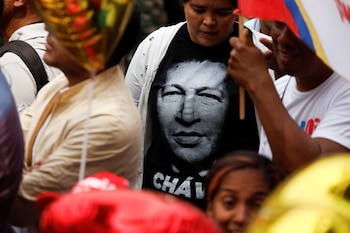INTERNACIONAL
India’s parliament passes bill that would change Muslim land endowments

- India’s parliament passed a controversial bill that amends laws governing Muslim land endowments, known as waqfs, by including non-Muslims on the boards that manage these properties and increasing government oversight.
- The government claims the changes aim to combat corruption and promote diversity, but critics argue it undermines Muslim rights and could lead to the confiscation of historic religious sites.
- Muslim groups and opposition parties have expressed concerns that the bill is politically motivated, and could marginalize Muslims by altering ownership rules and requiring waqf boards to validate property claims.
India’s parliament passed a controversial bill moved by Prime Minister Narendra Modi’s Hindu nationalist government to amend laws governing Muslim land endowments, while Muslim groups and opposition parties protested the move.
The bill would add non-Muslims to boards that manage waqf land endowments and give the government a larger role in validating their land holdings. The government says the changes will help to fight corruption and mismanagement while promoting diversity, but critics fear that it will further undermine the rights of the country’s Muslim minority and could be used to confiscate historic mosques and other property.
The debate was heated in both houses of parliament. The Lower House debated it Wednesday through early Thursday, while in the Upper House, the fiery discussion lasted more than 16 hours into early Friday.
The Congress-led opposition firmly opposed the proposal, calling it unconstitutional and discriminatory against Muslims. Modi’s ruling Bharatiya Janata Party lacks a majority in the Lower House, but its allies helped to pass the bill.
MUSLIMS IN INDIA VOICE CONCERNS THAT NEW CITIZENSHIP LAW COULD FURTHER MARGINALIZE THEM
In the Lower House, 288 members voted for the bill while 232 were against it. Similarly, 128 favored it and 95 voted against it in the Upper House. The bill will now be sent to President Droupadi Murmu for her assent to become law.
Raza Academy members shout slogans in Mumbai, India, to condemn the Waqf amendment bill that was passed early Thursday by the Lower House of India’s parliament, Thursday, April 3, 2025. (AP Photo/Rajanish Kakade)
Minority Affairs Minister Kiren Rijiju introduced the bill to change a 1995 law that set rules for the foundations and set up state-level boards to administer them.
Many Muslim groups, as well as the opposition parties, say the proposal is discriminatory, politically motivated and an attempt by Modi’s ruling party to weaken minority rights.
The bill was first introduced in parliament last year, and opposition leaders have said some of their subsequent proposals for it were ignored. The government has said opposition parties are using rumors to discredit them and block transparency in managing the endowments.
What’s a waqf?
Waqfs are a traditional type of Islamic charitable foundation in which a donor permanently sets aside property — often but not always real estate — for religious or charitable purposes. Waqf properties cannot be sold or transferred.
Waqfs in India control 872,000 properties that cover 405,000 hectares (1 million acres) of land, worth an estimated $14.22 billion. Some of these endowments date back centuries, and many are used for mosques, seminaries, graveyards and orphanages.
Law would change who runs waqfs
In India, waqf property is managed by semi-official boards, one for each state and federally run union territory. The law would require non-Muslims to be appointed to the boards.
Currently, waqf boards are staffed by Muslims, like similar bodies that help administer other religious charities.
During the parliamentary debate, Home Minister Amit Shah said non-Muslims would be included in waqf boards only for administration purposes and to help run the endowments smoothly. He added that they were not there to interfere in religious affairs.
«The (non-Muslim) members will monitor whether the administration is running as per law or not, and whether the donations are being used for what they were intended or not,» he said.
Muslim groups, like The All India Muslim Personal Law Board, said such comments were against the fundamentals of Islamic endowments as such bodies necessarily need to be governed by Muslims only. The board said the bill was «a blatant infringement on the constitutional rights of Muslim citizens» and called on citizens to hit the streets against it.
Mallikarjun Kharge, the Congress president, said, «Why should waqf bodies allow non-Muslims as members when Hindu temple trusts don’t allow people of other religions in their fold?»
One of the most controversial changes is to ownership rules, which could impact historical mosques, shrines, and graveyards, since many such properties lack formal documentation as they were donated without legal records decades, and even centuries, ago.
Questions about title
Other changes could impact mosques on land held in centuries-old waqfs.
Radical Hindu groups have laid claim to several mosques around India, arguing they are built on the ruins of important Hindu temples. Many such cases are pending in courts.
The law would require waqf boards to seek approval from a district level officer to confirm the waqfs’ claims to property.
Critics say that would undermine the board and could lead to Muslims being stripped of their land. It’s not clear how often the boards would be asked to confirm such claims to land.
«The Waqf (Amendment) Bill is a weapon aimed at marginalizing Muslims and usurping their personal laws and property rights,» Rahul Gandhi, the main opposition leader, wrote on social media platform X. He said the bill was an «attack on the Constitution» by the BJP and its allies «aimed at Muslims today but sets a precedent to target other communities in the future.»
INDIA’S RELIGIOUS DIVIDE CONTINUES TO WIDEN BETWEEN MUSLIM, HINDU COMMUNITY
Fears among Muslims
While many Muslims agree that waqfs suffer from corruption, encroachments and poor management, they also fear that the new law could give India’s Hindu nationalist government far greater control over Muslim property, particularly at a time when attacks against minority communities have become more aggressive under Modi, with Muslims often targeted for everything from their food and clothing styles to inter-religious marriages.
Last month, the U.S. Commission on International Religious Freedom said in its annual report that religious freedom conditions in India continued to deteriorate while Modi and his party «propagated hateful rhetoric and disinformation against Muslims and other religious minorities» during last year’s election campaign.
Modi’s government says India is run on democratic principles of equality and no discrimination exists in the country.
Muslims, who are 14% of India’s 1.4 billion population, are the largest minority group in the Hindu-majority nation, but they are also the poorest, a 2013 government survey found.
CLICK HERE TO GET THE FOX NEWS APP
INTERNACIONAL
Paso a paso, la historia de los intentos por «derribar» a Francisco que acaba de sumar un nuevo y sorprendente capítulo

A medida que pasan los años van saliendo a la luz datos y conociéndose testimonios que confirman que Jorge Bergoglio sufrió varias campañas de desprestigio y presiones en base a acusaciones falsas e imputaciones doctrinales sin un sólido fundamento, primero para que no llegara a ser pontífice y luego para que renuncie por parte de sectores muy conservadores. Era porque lo consideraban un «comunista» que estaba socavando la ortodoxia cristiana, atacando al capitalismo, favoreciendo la inmigración descontrolada y, en fin, difundiendo falsas teorías sobre el cambio climático que afectaban a las empresas energéticas.
La última novedad de esta saga se produjo recientemente con la revelación de la tanda final de los documentos desclasificados por el Departamento de Justicia de los Estados Unidos sobre el pedófilo Jeffrey Epstein. Allí aparece un intercambio del criminal sexual, un mes antes de suicidarse en prisión, en 2019, con el jefe de la primera campaña presidencial de Donald Trump, el halcón ultra conservador Steve Bannon, en la que se refieren a avanzar en el financiamiento de organizaciones católicas para que lleven a cabo una operación tendiente a “derribar” al pontífice argentino.
En rigor, las maniobras para desprestigiar a Jorge Bergoglio comenzaron antes de que fuese papa, en un intento precisamente para que no se convirtiera en pontífice. Fue en 2005, tras la muerte de Juan Pablo II, cuando manos anónimas depositaron en la casilla de los cardenales que debían elegir a su sucesor artículos del periodista Horacio Verbitsky en el diario Página 12 en los que se afirmaba que, siendo el superior de los jesuitas en Argentina, en 1976, había “entregado” a la dictadura a dos de sus sacerdotes que se desempeñaban en una villa porteña.
Si bien no eran muy conocidas las chances que Bergoglio tenía de suceder al papa polaco, había quienes por su pertenencia a la Iglesia o su cercanía a ella, sabían que el argentino podía obtener un buen número de votos e incluso llegar a los dos tercios necesarios para convertirse en pontífice. En aquel cónclave, el argentino fue el segundo más votado –Clarín reveló en aquel momento que obtuvo 40 votos- detrás de Joseph Ratzinger. Pero sus detractores no pudieron evitar que ocho años después, tras la renuncia de Benedicto XIV, llegara al papado.
Lo curioso es que los sectores más conservadores que trataban de descalificar a Bergoglio se apoyaban en su ofensiva en una campaña del kirchnerismo, dado que el entonces presidente Néstor Kirchner lo consideraba el “jefe espiritual de la oposición” y junto con su esposa, Cristina Kirchner, fogueaba los artículos de Vertbisky. Bergoglio terminó declarando como testigo ante un tribunal con el riesgo de ser imputado. Ya antes, esa extraña alianza había intentado que el Vaticano lo sacara del arzobispado porteño y lo trasladara a Roma.
Como pontífice, al confirmar su inclinación por una Iglesia abierta, despojada y crítica de un liberalismo económico extremo, Jorge Bergoglio provocó la resistencia de los clérigos más conservadores y, entre los laicos, sobre todo de la derecha norteamericana, su frente más cerril. La máxima expresión fue la movida del ex Nuncio en los Estados Unidos Carlo María Viganó, quien en 2018 le achacó en una larga y confusa carta haber protegido al arzobispo de Washington Theodore McCarrik, acusado de abusar de seminaristas y sacerdotes.
Francisco le encomendó a la Secretaría del Estado una investigación sobre cómo McCarrik llegó al cargo en tiempos de Juan Pablo II siendo que ya había indicios de sus delitos sexuales. Luego de dos años de trabajo el Vaticano difundió un informe de 400 páginas que explicó cómo fue y probó que ni bien se presentó una denuncia fundada Francisco lo apartó. “Lo de Viganó fue uno de los dos o tres intentos de tumbar su papado”, diría luego el prestigioso vaticanista del diario ABC de Madrid, Juan Vicente Boo.
Sin llegar a ser una ofensiva destituyente directa, sino más bien de desgaste de su figura, grandes industrias carboneras y algunas petroleras comenzaron a atacarlo de manera subrepticia desde que trascendió que estaba preparando la primera encíclica social sobre el medio ambiente en la historia de la Iglesia católica. Además, el semanario italiano L’Espresso difundió anticipadamente el texto en lo que fue visto por el Vaticano como un intento de esos sectores de debilitar el impacto del mensaje.
La filtración provocó una enérgica reacción de Jeb Bush -por entonces precandidato a la presidencia de EE.UU.- que conllevó una negación del cambio climático: “No voy a dejar que me dicten la política económica mis obispos, mis cardenales o mi papa. Es una arrogancia sostener que con relación a los cambios climáticos exista una ciencia exacta”, dijo. El conservador canal de televisión Fox News fue más allá al afirmar que Francisco era el hombre “más peligroso del planeta”.
Paralelamente, Bannon -considerado el principal referente de la oposición más extrema al Francisco de Estados Unidos- lanzó el movimiento soberanista “The Movement”, con el fin de nuclear a políticos populistas de derecha y, entre otras cosas, enfrentar a Francisco. En 2016 le dijo al líder del derechista partido italiano Liga del Norte Matteo Salvini que Jorge Bergoglio era “un enemigo” al cuál debía “atacar frontalmente” para aglutinar a los sectores más conservadores y tener futuro político.
Además, Bannon creó la Academia del Occidente Judeo-Cristiano para formar políticos, asociado al instituto católico italiano Dignitatis Humanae, al que adscribían los cardenales ultra críticos de Francisco Raymond Burke y Renato Martino, que luego tomaron distancia. Por “estar en el centro del universo de la política” eligió como base a Italia y como sede a un antiguo monasterio cartujo de Trisulti, a 130 km de Roma, al que accedió por licitación en 2016, y cuya concesión le fue revocada en 2021.
Ahora se sabe que su ofensiva para destronar a Francisco incluyó una asociación con el pedófilo Epstein. “Derribemos a Francisco”, dice textualmente en uno de los correos en el que apela al financiamiento de organizaciones católicas con ese objetivo a través de donaciones de la fundación que tenía el conspicuo criminal sexual. Aunque también su embestida incluía a Bill Clinton y su esposa Hillary; el presidente de China, Xi Jinping, y la Unión Europea.
Luego de asesorar a Trump en la campaña presidencial, lo siguió haciendo en los primeros meses de su primer mandato hasta que el presidente lo echó. No obstante, tras ser encontrado culpable de defraudar a donantes para la extensión del muro entre Estados Unidos y México, el mandatario lo indultó horas antes de dejar la presidencia. A su vez, Francisco resistió estoicamente los embates hasta que fue su salud la que marcó el fin de su pontificado.
INTERNACIONAL
ICE nabs convicted pedophiles and murderers over weekend despite smears at Super Bowl: ‘Risking their lives’

NEWYou can now listen to Fox News articles!
FIRST ON FOX: A spokesperson for the Trump Department of Homeland Security told Fox News Digital that despite ICE being «demonized» at the Super Bowl, agents continued to carry out operations, arresting pedophiles, murderers and rapists over the weekend.
President Donald Trump and many conservatives took issue with the Super Bowl, especially the halftime show, which featured Latin trap artist Bad Bunny. The performer, whose real name is Benito Ocasio, has been highly critical of ICE and even cursed at agents in a video posted to social media.
DHS said that «while ICE law enforcement officers were demonized at the Super Bowl, our officers were risking their lives to arrest public safety threats from American neighborhoods.»
Assistant Secretary Tricia McLaughlin told Fox News Digital that «despite smears from Hollywood, ICE is making our country safer every single day.»
BAD BUNNY’S SUPER BOWL HALFTIME SHOW IGNITES TRUMP’S FURY, DIVIDES VIEWERS
Footballs with the Super Bowl LX logo are pictured at the Wilson Sporting Goods factory in Ada, Ohio, Tuesday, Jan. 27, 2026. (AP Photo/Sue Ogrocki)
«While ICE law enforcement was being demonized at the Super Bowl, the heroic men and women of ICE continued risking their lives to arrest criminal illegal alien murderers, pedophiles and rapists from our communities,» said McLaughlin.
According to DHS, among those arrested over Super Bowl weekend was Mario Rosales-Figueroa, an illegal alien from Mexico, who was arrested a few hours from the stadium in Visalia, California. The agency said Rosales-Figueroa was convicted of sex with a minor.
A few hours further away, DHS said that agents arrested Salvadoran illegal Luis Edenilson Ortiz-Lopez in Las Vegas. According to the agency, he was convicted of gross or open lewdness. Also in Nevada, ICE arrested Guillermo Arturo Ramirez-Londono, a Colombian illegal who is convicted of two counts of sexual assault on a minor under 14 years old in Lyon County.
In New York, ICE arrested Rudy Roa-Fuentes, an illegal from the Dominican Republic who was convicted of murder, and Anderson Mejia-Bonilla, from El Salvador, who was convicted of rape.
NFL’S ROGER GOODELL BELIEVES BAD BUNNY ‘UNDERSTANDS’ SUPER BOWL LX PLATFORM IS MEANT TO UNITE AMID ICE OUTCRY

Illegal aliens arrested by ICE over Super Bowl weekend, left to right from top: Mario Rosales-Figueroa, Luis Edenilson Ortiz-Lopez, Guillermo Arturo Ramirez-Londono, Rudy Roa-Fuentes, Anderson Mejia-Bonilla, Eduardo Ramos-Domingo, Darwin Sorto-Pineda, Wilson Perez-Guzman, Tung Huy Nguyen and Gustavo Alvarado-Sanchez. (Getty Images; DHS)
Not far from New York, ICE arrested Guatemalan national Eduardo Ramos-Domingo, who was convicted of aggravated assault, attempts to cause or cause bodily injury with a deadly weapon in Chambersburg, Pennsylvania.
In Wake County, North Carolina, ICE arrested Darwin Sorto-Pineda, from El Salvador, who was convicted of driving while impaired and assault on a government official.
In the Midwest, ICE arrested Wilson Perez-Guzman, from Guatemala, who was convicted for statutory sodomy/attempted statutory sodomy in Bridgeton, Missouri, and Tung Huy Nguyen, from Vietnam, who was convicted for gross sexual imposition in Steubenville, Ohio.
In the South, ICE arrested Mexican illegal Gustavo Alvarado-Sanchez, who is convicted for kidnapping and assault in Hidalgo, Texas, and Cuban illegal Carlos Manuel Legra-Ramirez, who is convicted for aggravated alien smuggling in the U.S. District Court for the Southern District of Mississippi.
NOEM RESPONDS TO BAD BUNNY, BILLIE EILISH BASHING ICE AT GRAMMYS: ‘I WISH THEY KNEW’

Residents confront federal agents and Border Patrol agents over their presence in their neighborhood on Atlantic Blvd. in the Los Angeles suburb of Bell. California last year passed a law banning authorities from wearing masks. (Getty Images)
While accepting an award for Best Música Urbana Album at the recent Grammys, Bad Bunny remarked «ICE out,» adding,»We’re not savage, we’re not animals, we’re not aliens — we are humans, and we are Americans.»
The Independent reported last June that Bad Bunny blasted ICE in a clip posted to Instagram in which he called agents «motherf—ers» and «sons of b—-es.»
CLICK HERE TO DOWNLOAD THE FOX NEWS APP
According to McLaughlin, 70 percent of ICE arrests are of illegal aliens charged or convicted of a crime in the U.S. She said this statistic «doesn’t even include foreign fugitives, terrorists, and gang members who lack a rap sheet in the U.S.»
She added that «this heated rhetoric about ICE law enforcement is leading to our officers facing a more than 1,300% increase in assaults against them.»
super bowl,immigration,illegal immigrants,migrant crime,woke,homeland security,enforcement
INTERNACIONAL
Jaime Bayly reconstruye los tres días que sacudieron a Venezuela en 2002: “Chávez fue un militar, pero también un animador de televisión”

Vuelve Jaime Bayly. Jaime Bayly el mordaz, Jaime Bayly el provocador, Jaime Bayly el escritor. Todo junto. Vuelve con Los golpistas una novela que se lanza este miércoles 11 por Galaxia Gutenberg y donde reconstruye con su estilo los tres días de abril de 2002 en que Hugo Chávez perdió —y recuperó— el poder en Venezuela tras un golpe militar fallido. A partir de una investigación periodística y literaria, Bayly narra el desconcierto de los golpistas, la confusión en los cuarteles y el papel de Fidel Castro en la supervivencia del presidente.
La novela, de 240 páginas, retrata la lógica interna de un golpe descrito por el propio autor como “esperpéntico, chapucero, de aficionados, un golpe del que los propios conspiradores se arrepintieron al tercer día”. El relato alterna la reconstrucción de los hechos con episodios de la vida de Chávez, su ascenso militar, su pasión por el espectáculo.
El autor peruano explora la personalidad contradictoria de Chávez, un militar fascinado por la televisión: “Chávez fue un militar, pero también un animador de televisión. Era un militar atípico: le encantaban las cámaras, le gustaba hablar en público, era un comediante ocasional, vivía para salir en la televisión. Por eso tuvo tanto éxito en sus primeros años en el poder. Los pobres lo querían, no se perdían sus apariciones en la televisión, se reían con él. Para bien o para mal, era el gran animador del país y vivía obsesionado con los ratings de audiencia”, dijo a la prensa.

El libro recurre al humor y al realismo irónico. Bayly apunta: “El golpe fallido pudo cambiar la historia de Venezuela, de haber triunfado. Pero los jefes golpistas eran todos bastante cortos de miras”.
En la novela, los diálogos y las escenas cargadas de ironía permiten ver las motivaciones y contradicciones de los personajes: “—Tienes mi palabra. Serás mi embajador en Madrid. —Y si no te molesta, Efraín, a mi hermano lo nombrás embajador en Lisboa. —¿Y eso, por qué? —Porque me estoy cepillando a mi cuñada”.
Bayly, que entrevistó a Chávez en 1998, utiliza su experiencia como periodista para trazar el retrato de un líder que, según afirma, “era un dictador popular”: “El año mismo en que Chávez tomó posesión como presidente, el golpista fallido de 1992 reveló que seguía siendo un espadón camuflado en 1999, solo que ahora podía dinamitar la democracia desde las entrañas mismas del poder”.
Aquí, el comienzo de la novela:
Abril, 2002
–¡Firme su renuncia ahora mismo! –le gritó el general Efraín Velásquez, comandante general del Ejército, al presidente venezolano Hugo Chávez.
Sentado en el despacho presidencial del palacio de Miraflores, vestido con uniforme militar a pesar de que ya había pasado al retiro, Chávez, quien llevaba poco más de tres años ejerciendo la presidencia de la nación, desafió al general insubordinado mirándolo a los ojos, se arrepintió de haber confiado en él, desenfundó la pistola calibre nueve milímetros que llevaba en la cintura, la puso sobre la mesa, apuntando a Velásquez, y respondió, levantando la voz:
–¡No firmo nada, carajo! ¡No renuncio ni renunciaré! ¡Soy el presidente constitucional de este país!

Luego bebió agua, encendió un cigarrillo y buscó consuelo en la añosa mirada de José Vicente Rangel, su ministro de Defensa, quien, sentado a su lado, le dijo, alisándose un bigote crecio en canas:
–No firmes nada, Hugo. Si no firmas, es un golpe de Estado.
–¡No es un golpe de Estado! –rugió el general Velásquez, poniéndose de pie. Era gordo, sorprendentemente obeso para ser un general de división en actividad. Tenía la cara rechoncha, el hocico prominente, el morro abultado y un adefesio de pelusa sobre el labio superior. Miraba como miraría un jabalí ante el peligro.
A su lado, se apandillaban dos altos jefes militares: el general Manuel Rosado, todavía más gordo que el amotinado Velásquez, tan gordo que su rostro parecía un globo y su cuerpo embutido en el uniforme daba la impresión de estar a punto de reventar, y el general Lucas Rondón, de pelo negro y anteojos de intelectual, quienes, comandados por Velásquez, el jefe de la conspiración, habían llegado al palacio de Miraflores en un corto vuelo en helicóptero desde Fuerte Tiuna.

–¡No es una traición! –prosiguió, todavía de pie, golpeando la mesa, agitando sus mofletes, el general Velásquez–. ¡Es una posición de solidaridad con el pueblo venezolano! –bramó, y los generales sentados a su lado asintieron, moviendo dócilmente la cabeza.
El general Velásquez estaba indignado con el presidente Chávez. Se sentía humillado, desairado por el jefe del Estado.
Chávez le había pedido que sacara los tanques a la calle para reprimir una marcha pacífica de los opositores, quienes deseaban llegar al palacio de Miraflores, hartos de sus exabruptos autoritarios, para forzar su renuncia. Pero Velásquez se había negado a obedecerlo y dispuso que la marcha no se detuviera.
Acorralado, temeroso de que la multitud llegase hasta su despacho y lo linchase o quemase vivo, como él sabía que a veces morían los déspotas, Chávez había dado instrucciones para que sus brigadas paramilitares se apostaran en los techos de los edificios vecinos al recorrido y, desde allí, los francotiradores más avezados disparasen contra la multitud, en particular contra la vanguardia de aquella algarada. Al ver por televisión que el presidente Chávez había ordenado a sus francotiradores que disparasen a los opositores que se dirigían a la casa de gobierno, el general Velásquez y los jefes de la Armada, la Guardia Nacional y la Aviación decidieron, ardiendo en furia, sintiéndose traicionados, que Chávez, el felón, debía caer, que Chávez, el pérfido, debía ser desalojado del poder, que Chávez, el golpista, debía ser depuesto mediante un golpe de las fuerzas armadas.

–¡Le fui leal hasta hoy, señor presidente! –gritó el general
Velásquez, temeroso de que Chávez cogiese la pistola y se disparase un tiro en la cabeza–. ¡Le he perdido el respeto, señor!
¡Ni mis compañeros de armas ni yo toleramos las violaciones a los derechos humanos ni los crímenes que su gobierno ha cometido hoy, atacando a una marcha pacífica y matando a personas inocentes!
De pronto se puso de pie el general Lucas Rondón, miró fríamente al presidente y le dijo, las palabras ardiendo en las llamas del odio y la venganza:
–Si no firma su renuncia, señor presidente, yo anunciaré en la televisión que usted ha renunciado y la gente me creerá y habrá júbilo en las calles. Le ruego que firme. Porque si usted entra en razón y firma su renuncia, no irá a la cárcel y lo dejaremos salir al extranjero.
–Al país que usted elija –añadió el general Velásquez.
–¡No firmo nada, carajo! –rugió Chávez, y arrojó al piso el papel que Velásquez y Rondón habían redactado en Fuerte Tiuna, el acta de renuncia del jefe de Estado–. ¡A mí me eligió el pueblo, y solo el pueblo puede sacarme del poder! ¡Ustedes, miserables, no han sido elegidos por el pueblo! ¡Yo los he nombrado en los cargos que ocupan! ¡Me deben lealtad a mí, partida de escuálidos traidores!
El general Velásquez se acercó al presidente Chávez, lo cogió del pescuezo, como si quisiera estrangularlo, y le dijo, transfigurado en el hombre más poderoso del país:
–No es un golpe. Es un pronunciamiento institucional apegado a la Constitución.
Asustado, Chávez se resignó, bajando la voz:
–Estoy en sus manos, señores generales. Hagan conmigo lo que ustedes crean conveniente. Pero yo no voy a renunciar ni a firmar esos papeles apócrifos que me han traído.

 CHIMENTOS3 días ago
CHIMENTOS3 días agoNatalie Weber contó toda la verdad del coqueteo de Sabrina Rojas a Mauro Icardi en un boliche: “Yo sé lo que pasó esa noche y te puedo decir que Sabrina no fue”

 ECONOMIA2 días ago
ECONOMIA2 días agoEl sector industrial advierte que la apertura económica exige eliminar las distorsiones internas

 CHIMENTOS2 días ago
CHIMENTOS2 días agoMirtha Legrand se quebró desconsolada al hablar de la renuncia de Jimena Monteverde a su mesaza















